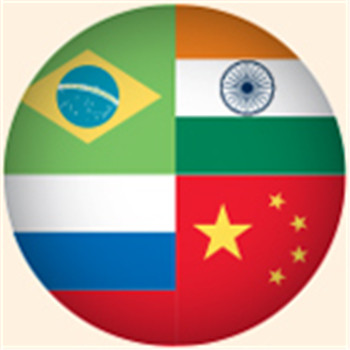(单词翻译:单击)

The US Federal Reserve risks triggering “panic and turmoil” in emerging markets if it opts to raise rates at its September meeting and should hold fire until the global economy is on a surer footing, the World Bank’s chief economist has warned.
世界银行(World Bank)首席经济学家警告,美联储(Federal Reserve)如果决定在9月会议上加息,就有可能触发新兴市场“恐慌和动荡”;在全球经济进一步站稳脚跟之前,美联储应该暂缓动手。
Rising uncertainty over growth in China and its impact on the global economy meant that a Fed decision to raise its policy rate next week, for the first time since 2006, would have negative consequences, Kaushik Basu told the Financial Times.
考希克巴苏(Kaushik Basu)对英国《金融时报》表示,围绕中国经济增长的越来越大的不确定性及其对全球经济的影响意味着,美联储如果下周决定提高政策利率(这将是2006年以来首次),会产生消极后果。
His warning highlights the mounting concern outside the US over the Fed’s potential “lift-off”. It follows similar advice from the International Monetary Fund where anxieties have also grown in recent weeks about the potential repercussions of a September rate hike.
他的警告突显出,在美国以外,人们日益担忧美联储可能很快开始加息。此前国际货币基金组织(IMF)也提出类似的建议,近几周来,该组织对于9月加息的潜在冲击波也越来越感到焦虑。
That means that if the Fed’s policymakers were to decide next week to raise rates, they would be doing so against the advice of both of the institutions created at Bretton Woods as guardians of global economic stability.
这意味着,如果美联储的政策制定者下周决定加息,他们将不理睬两家在布雷顿森林创建、旨在扮演全球经济稳定监护人角色的机构的意见。
Such a decision could yield a “shock” and a new crisis in emerging markets, Mr Basu said, especially as it would come on the back of worries over the health of the Chinese economy.
巴苏表示,这样的决定可能产生一股“冲击”,在新兴市场引发新的危机,尤其是在各方已经担忧中国经济健康状况的情况下。
He said that, even though it had been well advertised by the Fed, any rise would lead to “fear capital” leaving emerging economies as well as to sharp swings in their currencies. The likely strengthening in the dollar would also hamper US growth, he said.
他表示,尽管美联储已经做了大量预告工作,但任何加息都将导致“恐惧资本”流出新兴市场,新兴市场货币汇率也将剧烈波动。他说,美元很可能走高,而这也将阻碍美国经济增长。
“I don’t think the Fed lift-off itself is going to create a major crisis but it will cause some immediate turbulence,” Mr Basu said. “It is the compounding effect of the last two weeks of bad news with that [China devaluation]...In the middle of this it is going to cause some panic and turmoil. The world economy is looking so troubled that if the US goes in for a very quick move in the middle of this I feel it is going to affect countries quite badly.”
“我不认为美联储开始加息本身会带来重大危机,但它会引起一些直接的动荡,”巴苏表示。“这是过去两周的坏消息与(中国人民币贬值)的叠加效应……在这个节骨眼上加息会造成一定的恐慌和动荡。当前世界经济看上去问题多多,以至于如果美国在这个节骨眼上很快加息,我觉得那将对各国产生很厉害的影响。”
After spending months priming investors for a rate rise this year, the Fed faces an intense debate at its September 16-17 policy meeting over when to lift interest rates and how to balance evidence of a resilient domestic economy against gyrations in global financial markets driven by fears of a China slowdown.
在花了几个月时间让投资者准备迎接今年加息后,美联储在9月16-17日政策会议期间面临一场激烈辩论,焦点是何时上调利率,以及如何权衡国内经济强劲的证据与全球金融市场受中国经济放缓忧虑驱动的大起大落。
Mixed signals have recently been emerging from the central bank about the prospects of a rise this month. While the labour market is continuing to strengthen, officials are worried that inflation will be weighed down by the higher dollar and recent falls in commodity prices. Janet Yellen, the Fed’s chair, has repeatedly signalled that she expects to lift rates this year for the first time since 2006. She has only three meetings of the Federal Open Market Committee left this year if that expectation is to be fulfilled.
在本月会否加息的问题上,身为美国央行的美联储最近发出杂乱信号。尽管劳动力市场在继续走强,但官员们担心通胀将受到美元走高和近期大宗商品价格下跌的拖累。美联储主席珍妮特耶伦(Janet Yellen)曾多次暗示,她预期年内进行自2006年以来的首次加息。今年只剩下三次联邦公开市场委员会(FOMC)会议可让她兑现这个预期。
The impact of China’s slowing economy on the world was highlighted by trade numbers released yesterday that showed exports and imports slowed in August versus the same month last year.
昨日发布的贸易数据也突显了中国经济放缓对世界的影响。数据显示,8月中国出口和进口同比均有所放缓。
Mr Basu said the World Bank’s June forecast of 2.8 per cent growth for the global economy was now under threat.
巴苏表示,世行6月预测的全球经济今年增长2.8%现在看来有点悬。
“There is a concern in emerging economies all around in case China takes a hit,” Mr Basu said. “This is the problem right now in the world... we are going to get into a slower global growth phase. All this put together and what has happened over the past two weeks with the Chinese markets leads one to believe the scenario is looking worse than it did even in June.”
“新兴经济体普遍感到担忧,生怕中国挺不住,”巴苏表示。“这是眼下世界面临的问题……整体而言,我们正进入一个全球经济以较低速度增长的阶段。综合考虑所有情况,再加上过去两周中国市场的局面,让人相信整个形势甚至比6月看上去还要糟糕。”


